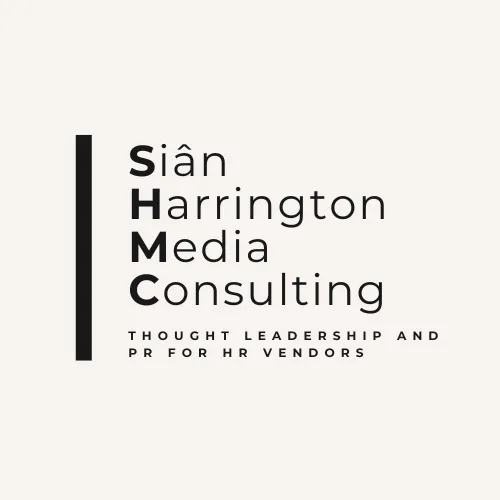Why Educational Email Courses (EECs) Are The Future of HR Lead Generation and Nurturing For HR Suppliers

Discover why Educational Email Courses (EECs) are the ultimate tool for HR vendors to generate, nurture and convert leads. Learn how EECs build authority, maintain engagement and drive sales in a scalable, automated way
Staying top-of-mind while educating your prospects is essential today. Whether you're a provider of HR technology, recruitment services, learning and development solutions or leadership consultancy, finding new, innovative ways to engage leads is crucial to growing your business. Traditional lead magnets like eBooks, webinars or discounts still have value but Educational Email Courses (EECs) are emerging as a new tool for engaging, nurturing and converting potential clients.
In this post we’ll explore why EECs are becoming an indispensable resource for vendors who sell to HR professionals – and how they can help you build authority, nurture leads over time and guide them through the buying journey.
What exactly is an Educational Email Course (EEC)?
At its core, an Educational Email Course is a series of emails, typically delivered over five consecutive days, that offers free, valuable education to your leads. These emails serve multiple purposes: they build trust and authority, provide actionable insights and ultimately position your offering as the natural solution to your prospect’s problems.
For vendors selling to HR professionals – whether you're dealing with HR tech systems that require detailed explanation, recruitment platforms that need to showcase their unique value or leadership development solutions that must onboard clients gradually – EECs provide a digestible and personal way to build relationships.
Unlike eBooks or PDF downloads, which often result in a one-time engagement, an EEC involves daily touchpoints that keep your brand and message top-of-mind over a sustained period. Let's dive deeper into why EECs outperform other forms of lead generation and nurturing.
1. Progressive engagement
One of the most powerful aspects of EECs is the progressive engagement they create. When someone opts into an Educational Email Course they're explicitly saying "Yes, I want to hear from you five days in a row." This raises the level of intent far above a simple eBook download or newsletter signup.
For HR vendors this is especially critical. Take an HR tech provider, for example. Technology solutions can often seem complex and prospects need time to digest how your offering solves their problems. A five-day email series lets you introduce your solution gradually- starting with a discussion of pain points then slowly demonstrating how your technology can streamline workflows, increase productivity or improve compliance. This incremental education is often more effective than overwhelming your lead with too much information at once, which is a common issue with static downloads.
2. Sustained contact and brand awareness
In an industry like HR, where the sales cycle can often be long, it’s essential to maintain ongoing contact with your leads without overwhelming them. A one-off interaction, such as a demo request or PDF download, can leave you out of sight, out of mind, especially if the lead isn’t ready to make an immediate decision.
An EEC provides sustained contact by keeping your brand in the prospect’s inbox for several days in a row. This repeated exposure fosters a stronger relationship and reinforces your expertise in solving the HR-specific challenges they face, whether it's recruitment bottlenecks, compliance issues or leadership development needs.
This is particularly valuable for vendors with a complex sales process. A leadership consultancy, for example, can use an EEC to showcase case studies, share leadership tips and offer tools that HR managers can implement immediately. By the end of the five-day course, you’ve not only educated your lead but established a rapport that’s difficult to achieve through a single interaction.
3. Better lead qualification and segmentation
EECs also give you an opportunity to qualify your leads over time. By tracking engagement metrics – such as open rates, click-through rates and responses – you can gauge which prospects are the most interested and ready to take the next step.
For instance, an HR software company could offer multiple EECs tailored to different pain points, such as “streamlining recruitment” or “managing remote teams.” Based on which EEC a prospect opts into, you can then tailor your follow-up strategy to their specific interests and level of engagement.
This type of lead segmentation is far more difficult to achieve with a generic eBook or whitepaper, which often results in a ‘one-size-fits-all’ follow-up approach.
4. Higher perceived value
Let’s face it: eBooks and whitepapers are becoming increasingly common and prospects are inundated with offers to download them. As a result these tools may not carry the same weight they once did. On the other hand,EECs often have a higher perceived value.
When prospects see that they’re being offered a five-day course – complete with tailored, actionable content – they’re more likely to view it as a valuable learning opportunity rather than another downloadable file that gets lost in their inbox. For HR vendors this creates an excellent opportunity to position yourself as a thought leader in the space.
For example, a talent development firm could use an EEC to deliver five days of bite-sized leadership development strategies. This not only demonstrates your expertise but also gives potential clients a taste of the value you provide, leaving them primed and ready to engage further.
5. Nurture leads over longer sales cycles
As anyone in HR sales knows the decision-making process can often be prolonged. HR professionals are deliberate buyers who require time to assess options, gather internal buy-in, and analyse ROI.
An EEC allows you to nurture leads during a longer sales cycle by offering ongoing education while gently positioning your product or service as the solution. Whether you’re encouraging a prospect to request a demo, book a discovery call or take the next step, the gradual delivery of value keeps them engaged throughout the decision-making process.
6. Scalability and automation
One of the most attractive aspects of an EEC is that it can be automated and scaled with ease. Once the course is written, designed and set up, it can run in the background, continuously working to generate and nurture leads without requiring constant input from your team.
For HR tech vendors this scalability is a gamechanger. Instead of manually following up with every lead who downloads a guide or signs up for a demo an EEC can be delivered automatically, nurturing hundreds (or even thousands) of leads at once while providing the personalised experience your prospects crave.
Why you should consider Educational Email Courses for your business
If you’re selling products or services to HR professionals an Educational Email Course offers a unique, high-impact way to engage your prospects, build trust and guide them through the buying process. The ability to educate over several days, paired with the opportunity to qualify leads and offer tailored content, makes EECs a powerful tool that surpasses traditional lead magnets like eBooks or demos.
Ready to create your own Educational Email Course?
We specialise in crafting Educational Email Courses designed to drive leads and nurture them to conversion. Let’s collaborate on a bespoke EEC that speaks directly to your audience’s needs and pain points, ensuring you stay top-of-mind and build authority in your space.
To see one in action why not sign up to The HR Vendors Marketing Toolkit, a free 5-day email course. Alongside the course you get access to a free detailed 24-page report that delves deeper into the preferences, challenges and decision-making processes of HR buyers. This report complements the course content, providing a broader context and actionable strategies that help vendors connect more effectively with their target market.
